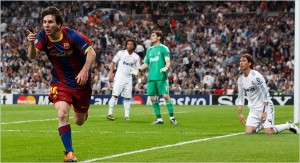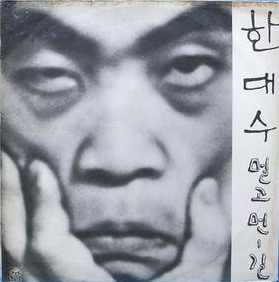– There is a very interesting article by Andrei Lankov here about North Korea and how the North Korean people, following the eventual fall of their current regime, will likely remember the Kim family with nostalgia rather than outrage.
It is said that sooner or later this fate will befall statues of Kim Il-sung, in 1945 a minor guerrilla commander who, with much Soviet backing, took power in North Korea and remained its absolute ruler until his death in 1994. However, this author is somewhat skeptical about the prospects: I would not be surprised to learn that some time in the 2030s it is trendy to keep a portrait of the long-deceased dictator in a North Korean house.
Lankov mostly uses Russia, his homeland, as a template for how people’s thinking might evolve after an authoritarian regime falls. Something related that he does not really talk about, though, is how poverty can be a united force. More specifically, mass poverty.
My Mongolian friends talk about how back in their communist days, everyone was poor, so being poor did not feel so bad. Today, Mongolia is free and there are more successful people. But those successes create much envy, and that envy can be a really poisonous emotion.
Let’s face it, people tend to think comparatively, not in absolutes. We don’t care so much about how we are doing as how our success compares to other people’s successes. Everyone wants to be the big man in his tribe (however one defines “tribe” these days).
North Korea may be one of the biggest failed states of modern times, but there are so few riches on display there, I could imagine the average North Korean has very few opportunities to feel envy (which I guess was one of the points of Barbara Demick’s book NOTHING TO ENVY). Which is perhaps one reason that the North’s propaganda has been so successful there for so long.
* * *
– While there have been many articles about how K-Pop became such a big success (including, of course, POP GOES KOREA), most of them have focused on the Korean side of the phenomenon, how Korean music companies grew more popular internationally (also including my book). But The Guardian had a really insightful story recently about how international music has helped build K-Pop.
The article looks at Universal Music Group, which has seen Korean grow into one of its most important markets, thanks to K-Pop. Because while local music in Korea dominates sales, the Korean music labels have known for a while that to compete internationally, they need to use the highest-quality songs and producers.
There’s also a lot of sync income in Korea. The song Top Billing Love – written by Karen Poole, Bloodshy and Avant, responsible for hits for artists like Kylie and Britney – almost made it onto a Britney Spears album in 2002. SME did a deal with mobile phone manufacturer LG and its biggest girl groups, Girls’ Generation and FX, did a version each of the song, calling it Chocolate Love, since LG were launching a new brown phone.
Girls’ Generation’s version went straight to number one. A few weeks later they released the FX version , which also went to number one. Then they released a joint version for LG, which also went to the top of the charts.
It is always useful to be reminded that globalization is a two-way thing, requiring giving and taking to be successful. As good as Korean music companies have been with the marketing and packaging, they still need great songs to create fans.
* * *
– Random crazy-guy babble coming up. Apologies in advance.
Growing up, when it came to politics, I remember a popular saying going something like: “If you are 20 and not a communist, you have no heart. If you are 40 and still a communist, you have no brain.” But I am beginning to wonder if the opposite might be true for my generation.
Back in the 80s, between Ronald Reagan, Wall Street (the Oliver Stone film), and Alex P. Keaton of Family Ties, I think a lot of people in my age group bought into conservativism too early. But just as leftist politics were coasting off of the fumes of the 1960s well after that era had passed, I think modern conservativism is in many ways doing the same thing, using the rhetoric and memory of an era that is no longer relevant.
When I look at international finance today, globalization, and today’s economies, I do not see much that is “conservative” about what passes for the common wisdom. Minimal regulation doesn’t mean no regulation. Collusion, corruption, and cronyism is not efficiency. Free markets only work when the referees are neutral, and the system is as transparent and accountable as possible.
That said, it was good to see the Tories do so well in last week’s Canadian election. I was just graduating university when they were shellacked in the post-Mulroney election, reduced to just three seats in Parliament. But today, they have a majority government again.




